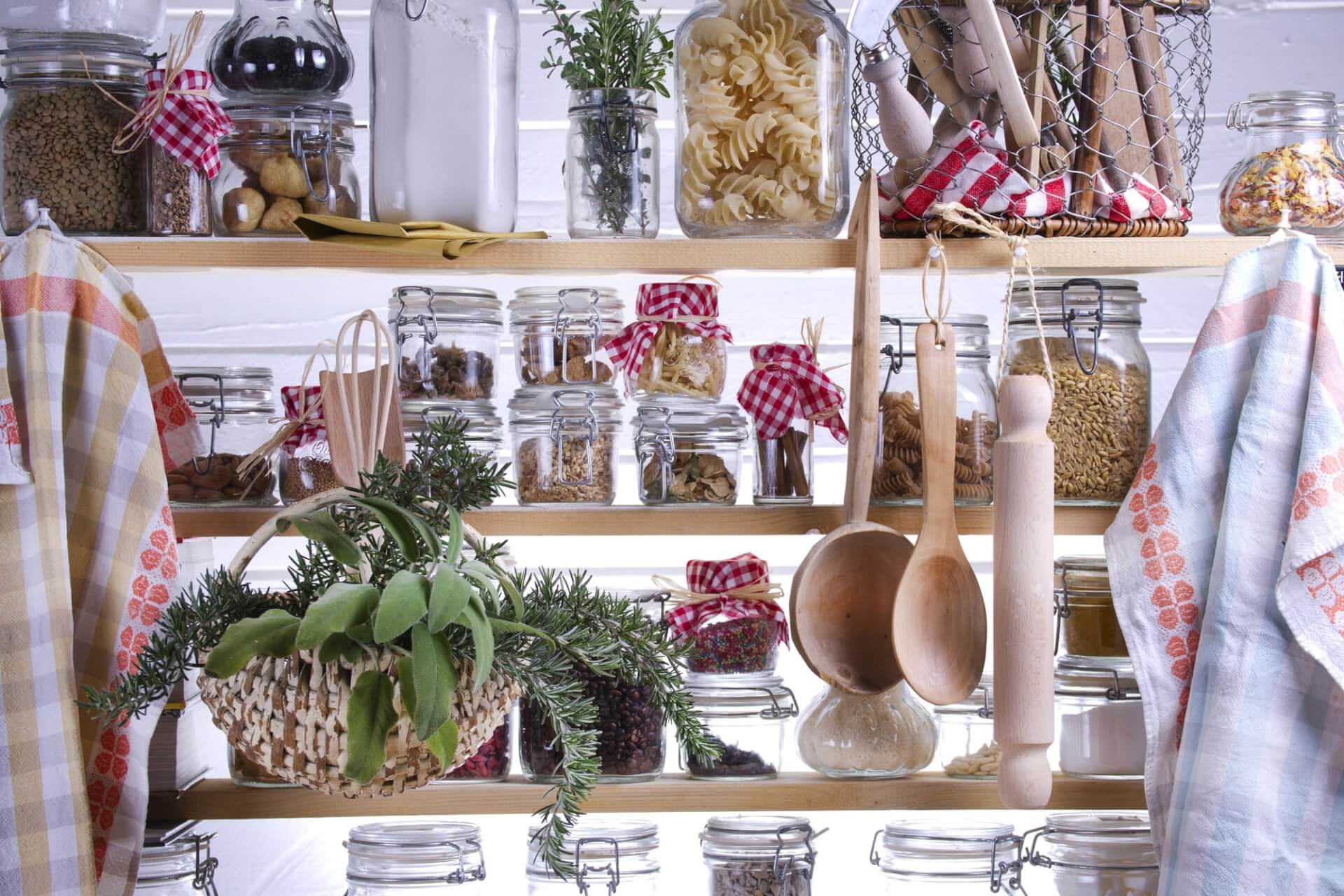
When it comes to cleaning out your pantry, many of us who don’t do it very often can expect to find an expired can of beans or soup lurking at the back of the shelves. Even if you’re on top of regular cleanings, there are a few pantry regulars that go bad much sooner than you’d think.
Oils
It’s best to store all your oils in a cool pantry, or failing that, in the fridge.
Extra Virgin Olive Oil: Over time olive oil loses many of the beneficial antioxidants and anti-inflammatory properties that make it an important mainstay. The expiration date for many olive oils is two years from the time they were bottled. However, many variables come into play when determining the shelf life of olive oil. Depending on the conditions it was stored in and the quality of the oil, it can go rancid much sooner. A good way to tell if olive oil has gone bad is to smell it. Rancid oil will have the smell of cardboard or crayons. If you notice a funky smell when you check the olive oil, ditch it and consider storing the new bottle in the refrigerator if your pantry is not particularly cool and dry.
Grapeseed Oil: Grapeseed oil has one of the shortest life spans and should be replaced every 3 months. Luckily it can be purchased in small quantities. Store in the fridge.
Sesame Oil: Sesame oil comes in second with a 4-6-month life span.
Canola, peanut, flaxseed: If you’re not using these oils often, it’s best to store them in the refrigerator. If they’ve been around awhile, smell them before you start cooking. Make sure you don’t heat flaxseed oil as it goes rancid when it is heated.
Flours
Flour goes bad sooner than you think.
Whole Wheat: The natural oils in this flour make it more volatile and give it only 4-6 months of shelf life open or unopened. To keep your whole grain flours sweeter for longer, store them in the fridge.
White: This flour has been stripped of many nutrients, but it still can turn after 6-8 months, whether opened or unopened.
Brown rice should generally be used within 6-8 months. If you notice a dusty or oily look to the rice, or sense a rancid smell, it’s time to throw it out.
Nuts
As with everything else, the main culprit here is the fat content in the nuts. Oils and fats make nuts very volatile. If you are buying nuts in bulk, or don’t eat them that often, it’s best to keep them in the fridge or the freezer to keep them from going bad.
Spices & Herbs
Spices should really be replaced every six months. If you noticed a lot of recipes aren’t quite as tasty as you might think, it could be that your spices are old.
Store your new spices in airtight jars inside a dark cupboard, and not out on a rack. This will keep their aroma stronger for longer.
Canned Tomatoes (and Other Canned High Acid Foods)
We definitely recommend having a lot of canned tomatoes around, but that’s only because we LOVE tomatoes and use them all the time. If you’re not cooking with tomatoes a few times a week as we are, don’t buy them in bulk. Turns out they only last around 12-18 months and the antioxidant properties in tomatoes often dissipate within the first three months of their life in the can. High acidity foods, in general, do not have a long shelf life because they can degrade the inside of the can quite easily.
Tea
Similar to herbs, old tea is generally still safe to drink. However, the tea itself loses a lot of the beneficial antioxidant power quickly. Keeping it in an airtight container can help it keep longer.
In general, it’s always a good idea to check the expiration date of ingredients you don’t often use and give them the whiff test before cooking with them. To help your pantry items stay fresh, keep them in glass containers, and your pantry cool and dry. And don’t be afraid to store items like oils, whole grain flours, and nuts in your fridge. Proper storage will help your pantry ingredients live long and help you prosper!













Reviews and Comments
No reviews yet.
Leave a Review or Comment